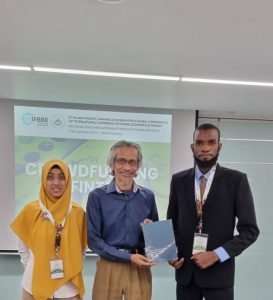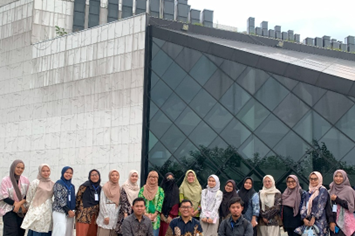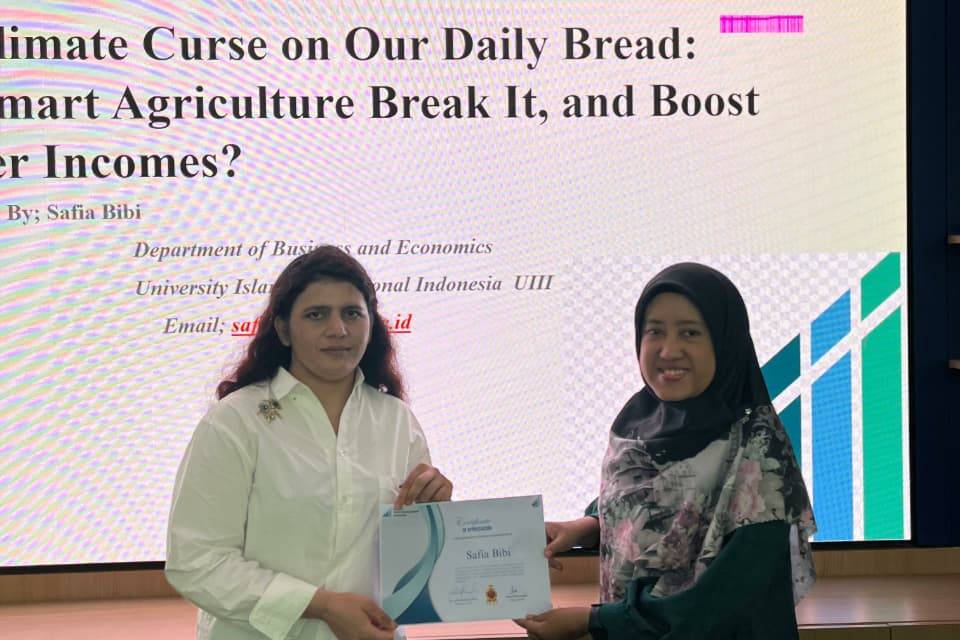
Attending the conference would be academically lucrative for students because it may raise the caliber of research and theoretical understandings to greater heights upon achieving shared objectives. Apart from that, the publication is a certain objective and reason for attending the conference, thanks to the potential of research being published and indexed, either through proceedings or journals.
Two UIII FEB international students; Issa Hamadou from Cameroon and Nihad Ashraf from Zambia obtained this opportunity, to not only submit their research but also present it at the 6th Islamic Finance, Banking and Business Ethics Global Conference & 14th International Conference on Islamic Economics and Finance which took place in INCEIF Kuala Lumpur, Malaysia. These two students became quite standing out since of all participants that were mostly Ph.D. students and practitioners, they were the only participants from the master level.
Portraying the fluctuating performance of Islamic Banks in Indonesia, Issa analyzed the possible relationship between banking risk and bank competition. It is paramount to predict accurately to what extent Islamic banks’ behavior changes amidst contestable markets with entry restrictions that are low on new banks. Additionally, he observed what risks are needed to mitigate with proper prudent risk management to not only help banks enhance their profits but also maintain fewer losses in investments and loans.
Meanwhile, Nihad had a higher interest in Zakah as she measured Indonesia’s sustainable economic development with the VECM approach. Albeit less transparent, Zakah with its great potential in changing the life of ummah should be more held accountable to improve the welfare and prevent environmental damage in the long term. It is imperative for government to uphold social justice and ensure a sustainable and resilient economy through zakat to accelerate economic growth in Indonesia.

